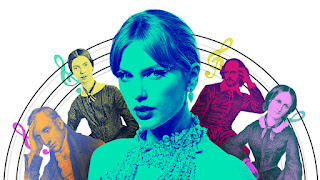Allison Mao Week 4: Two Brains
Imagine you wake up in your bed one day. You get out of bed to pick your outfit. You grab a jacket from the closet but your other hand grabs another jacket at the same time, shoving it in front of the other jacket. You cannot will the other hand to let go of that jacket.
This is something someone with a split brain may deal with. A split-brain patient has this condition when the “direct neural connections between the two cerebral hemispheres” are severed, leaving the two hemispheres unable to communicate with one another. In a normal brain, the two hemispheres work together to process information and share it with one another. Once they are split apart, they are physically incapable of interacting with each other.
The two hemispheres have some different roles when it comes to controlling the body. The left hemisphere is able to control the right side of the body while the right hemisphere controls the left side. However, only the left hemisphere is able to control speech.
Several experiments have taken place involving the study of this condition. Like the image shown above, the patient is told to focus on a dot at the center of a screen. Two words then appear on each side of the dot. The patient is asked to tell the experimenter which word they saw.
"Ring," the patient would say.
Wordlessly, their left hand comes forward, grabbing a key from the table.
The patient shows genuine surprise at the action.
This experiment shows that each hemisphere is indeed unaware of the other's actions. This is where things get interesting. If the left brain and right brain are disconnected, then which one is actually the body? Is it the left brain because it is able to communicate with other humans through speech? Or is it the right brain, much like a mute person? Perhaps is it like two people sharing one body. An article on split brains suggests that “if an embodied mind of characteristic human complexity is a person, then the split-brain patient is two persons since the patient embodies two of them.” This then implies that humans with the hemispheres able to communicate with one another are still like two “beings” sharing one body.
I wonder what it feels like to have such a condition. The left brain may be the only brain that can speak and tell people about their experiences, but what about the right brain? I’m curious if their brains can interact with each other through other means. Could the left brain write down something on a piece of paper with the side of the body that it controls and show it to the right brain? Could the right brain then respond on a piece of paper as well rather than verbally? I hope I can meet someone who has this condition one day to learn more about it.
Source: Marks, Charles. Split brains, 1998, doi:10.4324/9780415249126-W042-1. Routledge Encyclopedia of Philosophy, Taylor and Francis, https://www.rep.routledge.com/articles/thematic/split-brains/v-1.


This comment has been removed by the author.
ReplyDeleteHi Allison! I think starting your blog with an interesting scenario is a great way to not only captivate your audience, but also provide an insightful example of your topic. Furthering the quality use of examples, was your explanation of the image you provided, which depicted another real life example of split brain. Your descriptive language enhanced your writing to a point where I could imagine what it was like to have split brain through the scenarios that you provided. The use of multiple examples was an excellent way to explain a topic that would otherwise be difficult to comprehend, especially since I had never heard of such disorder and assume that it is not well known. Along with your descriptive diction, your use of rhetorical questions further simplifies the complex topic. Inserting your own thoughts and questions on the concept helped separate your writing from a typical informational piece add a sense of individuality, creating an overall interesting and engaging read.
ReplyDeleteHi Allison! I think it is really cool on how you did your blog on something we learned about in our AP Psychology class! I was honestly struggling to understand the concept while reading our textbook but your blog made me fully understand. Starting off your blog with an scenario really caught my attention and prompted me to keep reading. Your blog felt like it was written in your voice which really made it much more authentic to read. The concept of split brain is very interesting and a complex topic which I hope to learn more about in the future. Overall, I really liked your blog as it was a very interesting and thoughtful read.
ReplyDelete